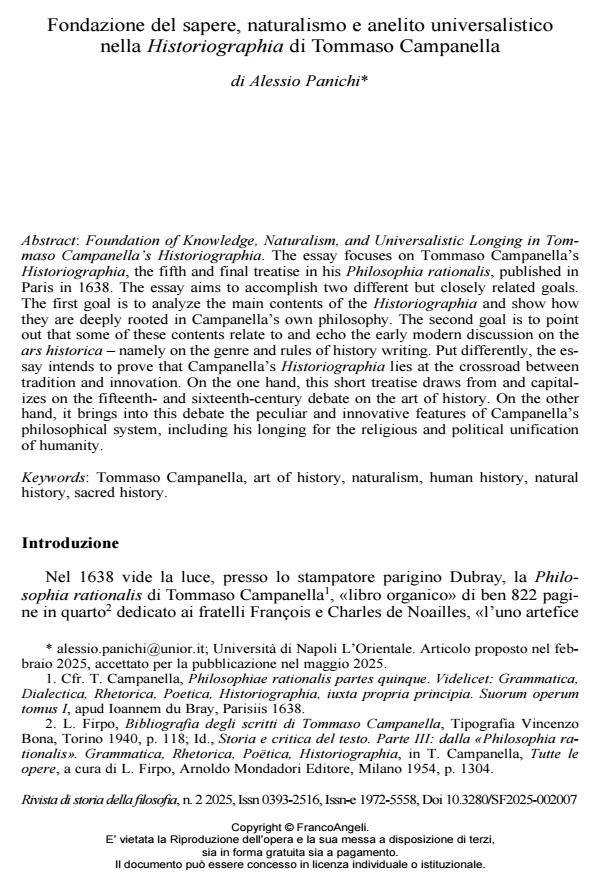Foundation of Knowledge, Naturalism, and Universalistic Longing in Tom- maso Campanella’s Historiographia
Journal title RIVISTA DI STORIA DELLA FILOSOFIA
Author/s Alessio Panichi
Publishing Year 2025 Issue 2025/2
Language Italian Pages 23 P. 287-309 File size 263 KB
DOI 10.3280/SF2025-002007
DOI is like a bar code for intellectual property: to have more infomation
click here
Below, you can see the article first page
If you want to buy this article in PDF format, you can do it, following the instructions to buy download credits

FrancoAngeli is member of Publishers International Linking Association, Inc (PILA), a not-for-profit association which run the CrossRef service enabling links to and from online scholarly content.
The essay focuses on Tommaso Campanella’s Historiographia, the fifth and final treatise in his Philosophia rationalis, published in Paris in 1638. The essay aims to accomplish two different but closely related goals. The first goal is to analyze the main contents of the Historiographia and show how they are deeply rooted in Campanella’s own philosophy. The second goal is to point out that some of these contents relate to and echo the early modern discussion on the ars historica – namely on the genre and rules of history writing. Put differently, the es- say intends to prove that Campanella’s Historiographia lies at the crossroad between tradition and innovation. On the one hand, this short treatise draws from and capital- izes on the fifteenth- and sixteenth-century debate on the art of history. On the other hand, it brings into this debate the peculiar and innovative features of Campanella’s philosophical system, including his longing for the religious and political unification of humanity.
Keywords: Tommaso Campanella, art of history, naturalism, human history, natural history, sacred history.
Alessio Panichi, Fondazione del sapere, naturalismo e anelito universalistico nella Historiographia di Tommaso Campanella in "RIVISTA DI STORIA DELLA FILOSOFIA" 2/2025, pp 287-309, DOI: 10.3280/SF2025-002007